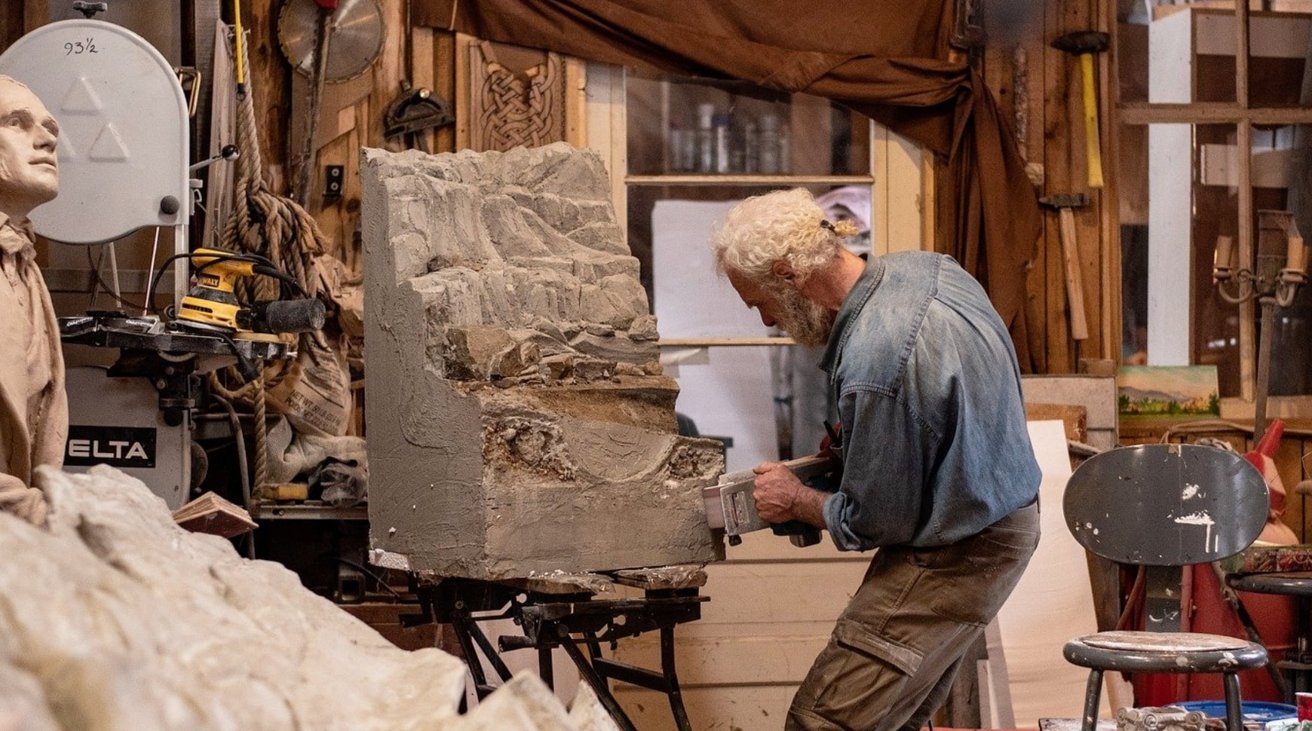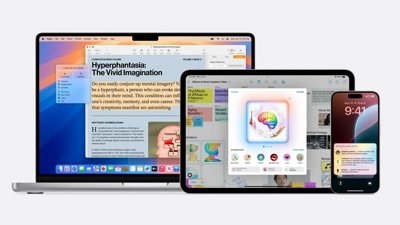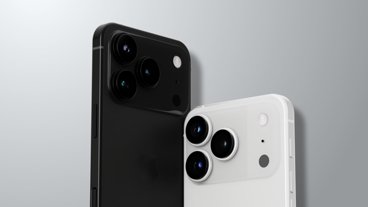A number of major artists and stars in the UK, including Oscar winner Olivia Colman, have called for a tax to be placed against devices like the iPhone to raise millions of pounds to help fund artists.
Launched on Monday, the Smart Fund is proposed as a way to raise up to 300 million pounds ($415 million) per year, which will go towards funding creative industries in the United Kingdom. To achieve this, the project offers that a small levy could be applied to technology sales in the country.
A levy of between 1% and 3% of the sales value of smartphones, computers, and other devices that are "built to allow people to store and download content" is proposed, which would be fed into a central fund, and then distributed to content producers.
The fund believes this will help creators "sustain a living from their content, support and bring together communities, and put different parts of the UK on an equal footing." It also claims that existing similar projects exist in 44 countries around the world, collectively raising 930 million pounds ($1.29 billion) in 2018 alone.
Celebrity backers include Olivia Colman, Imelda Staunton, Yinka Shonibare, Sir Frank Bowling, and Rachael Whiteread, among others. There are also claims that the Smart Fund is an opportunity to help creators across the country who were negatively affected by COVID-19, due to the closure of venues and cancellation of events.
"Working with the tech industry and innovators in this sector, we want to support creators and performers, to rebuild and enable the UK's world-leading cultural heritage, tourism, and creative industries and contribute to its soft power and international standing," according to Design and Artists Copyright Society chief executive Gilane Tawadros. "The arts provide sustenance to the engine room of cultural regeneration, recovery and renewal for the whole country"
While the project has received considerable attention in the country in a short space of time, it seems that it serves more as a call to action rather than an official proposal to the UK government itself. The UK also has numerous existing projects for funding the arts, including grants from regional Arts Councils funded by the National Lottery.
Critics are also concerned that it may appear as a tax on consumer spending. "It is an arbitrary tax on consumers that is hugely bureaucratic to manage, and with no transparency on how funds are disbursed and spent," said a spokesperson for Tech UK to the BBC, adding that consumers may ask why they have to pay an extra tax on top of "a significant amount of VAT."
In 2019, the UK parliament reckoned arts and culture contributed 10.47 billion pounds ($14.5 billion) to the economy, helping to fund an estimated 226,000 jobs.
While devices that can view content is seemingly the target of the campaign, there is the argument that major firms funding the content in the first place could be a source of additional funding. For example, it is estimated Netflix spent 260 million pounds (360 million) on the first two seasons of the drama "The Crown," a show which stars Colman, with the service also planning to spend $17 billion on new content globally in 2021.
Keep up with everything Apple in the weekly AppleInsider Podcast — and get a fast news update from AppleInsider Daily. Just say, "Hey, Siri," to your HomePod mini and ask for these podcasts, and our latest HomeKit Insider episode too.
If you want an ad-free main AppleInsider Podcast experience, you can support the AppleInsider podcast by subscribing for $5 per month through Apple's Podcasts app, or via Patreon if you prefer any other podcast player.
 Malcolm Owen
Malcolm Owen







-m.jpg)






 Chip Loder
Chip Loder
 Wesley Hilliard
Wesley Hilliard
 Amber Neely
Amber Neely
 Marko Zivkovic
Marko Zivkovic

 Andrew O'Hara
Andrew O'Hara
 Christine McKee
Christine McKee










39 Comments
OR
...the artists in question could convince people to buy their art outright, like most other art forms, e.g. games, movies, books.
"People won't buy my artwork. I want the government to make them buy it!"
Get your hands off Other Peoples’ Money you frigging parasites.
As a novel approach, how about you yarts people produce some art people might be prepared to you know, pay for?
And if this was remotely true:
There is absolutely no need for such a tax, unless of course one wants to develop an inefficient and bureaucratic way to maintain otherwise chip fryers with the lifestyle they think they deserve, if not earn.
How about they just create something of value that people in the UK and across the world will actually pay money for? It seems like the UK is looking for a free ride.
I don't hate the idea. The fact that so much of the Arts Council is funded by the Lottery is pretty grotesque, while a sur-tax on luxury electronics is far more palateable. However, the Smart Fund website says
I suggest that if tech companies are expected to contribute, then creators and performers, particularly the higher earning ones, should also. That's collaboration.
The problem with funding bureaucratic Arts Councils (and their myriad cousins) is that the “Arts Community” ends up producing art to chase grant income and appeal to the gatekeepers on the Councils.
I reckon it is your civic duty to pirate Arts Council funded stuff on Channel BT.